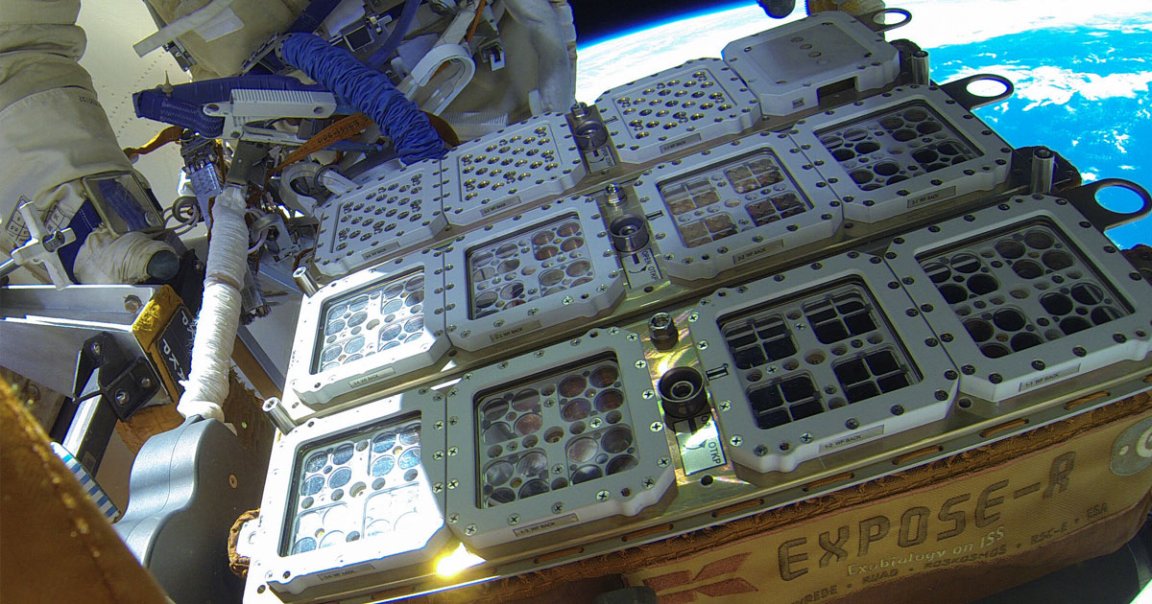
Swab Saget
On Thursday, NASA astronaut Loral O’Hara and ESA commander Andreas Mogensen are gearing up for a spacewalk to swab the exterior of the International Space Station. Their mission? Swabbing for evidence of microorganisms that might be clinging to its exterior, surviving under some of the most extreme conditions imaginable.
Scientists have long studied some of the most resilient microbes on the planet to determine if they’re capable of surviving in outer space — an area of study that could have some profound implications on the search for extraterrestrial life.
Survivor: Orbit
In 2015, astronauts mounted a box to the exterior of the ISS, exposing microbes to cryogenic temperatures and extreme levels of radiation.
As detailed in a 2020 paper, a team of Japanese researchers discovered that a bacteria placed inside the box called Deinococcus radiodurans appeared to survive for three years in outer space, baffling microbiologists.
A separate experiment running from 2014 to 2016 by the German Aerospace Center called Biology and Mars Experiment (BIOMEX) found that yet more simple organisms were able to survive the extreme conditions outside the ISS.
The results hint that microbial life may be able to cover vast distances, perhaps even allowing rudimentary life forms to jump from planet to planet — potentially transferring life between Earth and Mars, for instance.
“Of course, this does not mean that life actually exists on Mars,” astrobiologist Jean-Pierre Paul de Vera said in a statement at the time of the BIOMEX experiment. “But the search for life is more than ever the strongest driving force for the next generation of missions to Mars.”
In other words, we’re only beginning to understand how life — at least how we’ve come to know it here on Earth — could survive outside our protective atmosphere.
On Thursday, will swab the outside of the ISS to see if microorganisms can survive these treacherous conditions, bringing us one small step closer to figuring out if we’re alone in the universe. And we can’t wait to hear about what they find.
More on microorganisms in space: Black Mold From Earth Could Survive on Mars, NASA Says